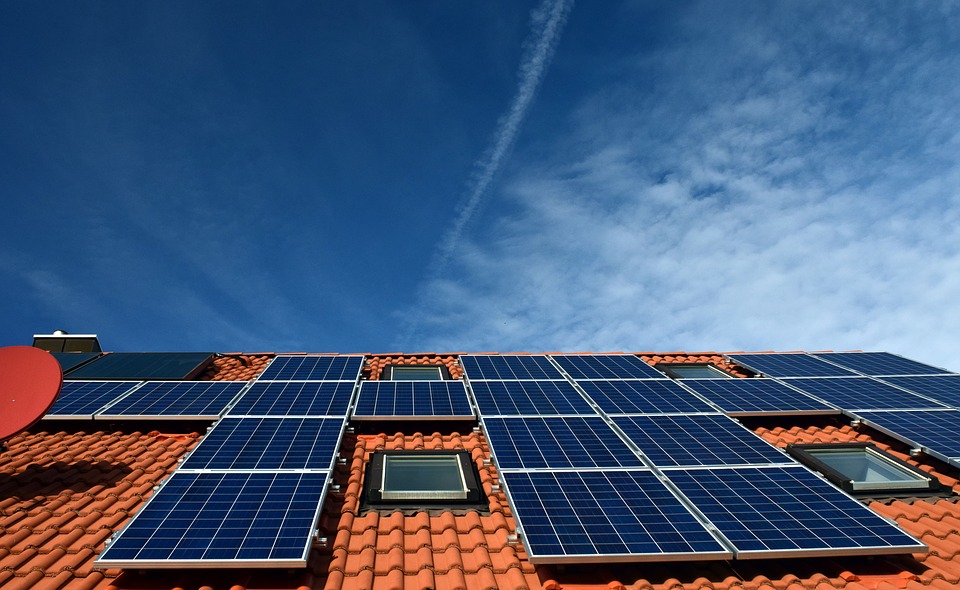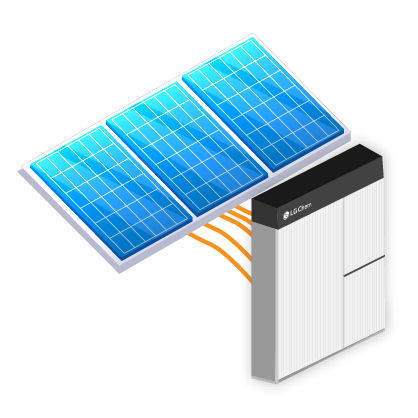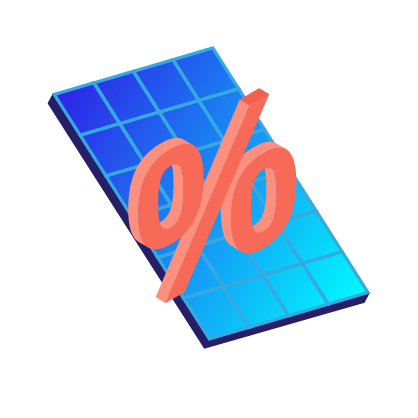Does Solar Panel Temperature Coefficient Matter?
If you are trying to maximize the amount of energy that your solar panel system can generate, then your solar panel’s temperature coefficient is something that you want to be familiar with.
Your solar panel’s temperature coefficient has to do with the influence that the panel’s temperature has on its productivity. In this post, we will look at exactly what a solar panel’s temperature coefficient is and whether or not you should focus on it when planning your solar project.
Solar Panel Temperature Coefficient
The temperature of your solar panel has a direct effect on its ability to generate electricity. This has to do with the laws of thermodynamics and how heat limits any electronics ability to produce power.
For solar panels, this impact is reflected through the temperature coefficient, which is expressed as the percentage decrease in output for every 1-degree Celsius (°C) increase in temperature from 25°C (77°F). Solar panels are tested for their efficiency at 25°C, and that is why this is used as the reference point.
Most solar panels have a temperature coefficient of around -0.3% / °C to -0.5% / °C. For example, SunPower’s solar panels all have a temperature coefficient of -0.37% / °C.
What this means is that for every 1°C above 25°C, SunPower’s solar panels decrease in efficiency by 0.37%. So, if your panels are at 35°C (95°F) and have an overall efficiency of 17%, then their true efficiency at that temperature will be closer to 16.4%.
Temperature coefficients for top panels on Solar.com
| Solar Manufacturer | Temperature Coefficient Range |
| Q CELLS | -0.42 to -0.37 |
| Hyundai | -0.45 to -0.41 |
| LG | -0.42 to -0.3 |
| SunPower | -0.38 to -0.29 |
| Panasonic | -0.3 to -0.29 |
Though this decrease might seem negligible, when you consider the fact that a solar panel can reach up to 65°C, this number can start to add up.
Does it Matter For Your Solar Project?
A solar panel’s temperature coefficient is not the only factor that influences a panel’s overall power output, but it is a good starting point for calculating a more realistic level of production for your specific setup.
When you are choosing the best solar panels for your home, you can think of how hot your panel may get and use that to estimate how efficient they will be on your rooftop. The good thing is that unless your solar panels are exposed to an exorbitant amount of heat, the decrease in efficiency will likely be negligible, even on a hot summer’s day.
If your roof is designed to absorb a massive amount of heat, and you are also living in a location that can see temperatures of 110°F or higher frequently throughout the summer, the loss will be greater, but still not so severe that it will make a long-term impact on your energy savings.
Having your solar panels on top of a heated vent will cause issues, so that is definitely something to watch out for while planning your solar panel array.
How to Minimize Solar Panel Efficiency Loss
Within the scope of the solar panel’s temperature coefficient, the primary way to mitigate loss in efficiency is through the reduction in the temperature of your solar panels. Here are some of the factors that influence the panel’s temperature:
- The type of solar panel installation has a direct effect on the panel’s temperature. For example, if an angled, roof-mounted system is at 30°C, that same system, but mounted flat on the rooftop, maybe at 35°C.
- Thin film solar panels have a lower temperature coefficient than traditional monocrystalline or polycrystalline panels. Thin film panels can see temperature coefficients closer to -0.2% / °C.
- The material of your roof can have an impact on the solar panel’s temperature. Certain rooftops absorb more heat than others. Make sure to take into account your roof type when making your analysis.

Solar Temperature Coefficient is… Generally Insignificant
When you think of the long-term production goals for your solar panel system and then account for the losses that come from the panel’s temperature coefficient, the impact is quite insignificant for the majority of homeowners.
In most areas of the country, your solar panels will likely stay around 25-35°C throughout the majority of the year. The exception is with places that can reach extreme temperatures during the summer months, like Phoenix, Las Vegas, and many other cities, especially when considering the recent heat waves.
To get all of these details and more for your specific solar panel project, you can get started with our free service at Solar.com and talk with one of our personal energy advisors today!











